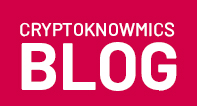10-70% of the drugs/medicines distributed within the low-income countries are either counterfeit, contaminated or substandard.
The above statistics tell the story of our healthcare sector and its one of the greatest concerns for people as well as the government. How to redefine this concern in the industry? Is it even possible? Well, blockchain technology has a solution. Integrating blockchain technology with the healthcare sector will bring transparency, which ultimately takes away the chances of counterfeits and malpractices.
Blockchain bring more solution to this sector, mostly in the following areas of concern,
- Tracking medicine supply chain
- Health data analysis
- Safeguard electronic health records
- Payment validation
We shall explain each sector one after the other in the following sections.
The present situation of our world
The present scenario as we know is critical, COVID-19 is spreading and becoming a life threat around the world. There are no vaccines yet discovered to treat this pandemic and efforts are going on to make an effective vaccine.
However, a proper tracking system needs to be implemented as many companies are coming up claiming that they found the cure. With false hope, people just cannot take the medicine, which means a transparent health system should be established. From the medicine development to the delivery, every single process must possess what we call ‘transparency’.
Let’s narrate each blockchain instances, one after the other;
Tracking medicine supply chain
Medicine supply chain management is one of the most important areas that should have proper tracking or review. It’s not a simple task to manage and track the entire supply chain, so the tracking must follow the below process.
The manufacturing company & staff details – Manufacturing materials (The ingredients of the medicine) – The process of manufacturing – The final product – Transportation process – Wholesale distributors – Retailers – The end consumers
In the medical field, the best quality of medicine is needed and to be supplied. At the beginning of this article, we’ve seen the act of non-legitimate nature which creates great concern for the people and adding more pressure to the government. Blockchain technology with the essence of tracking can bring down most of the counterfeit market.
Counterfeit medicines are exact duplicate medicines that have inaccuracies like false packing, not including proper ingredients, etc. Substandard medical products are the next concern where inconsistencies occur in medicine standards.
When these medicines start to supply in the market, what happened to the people who consume it without understanding its aftereffects?
In the present situations, if a medical store or a research group claims that they found a medicine for the pandemic and is available in drug stores near them, people will go and buy it. Not everyone knows that these medicines need approval from federal agencies like the FDA.
The above method is preferred to avoid fatality risks by eliminating the chances of fake medicines, substandard medications, etc.
All the medicine supply chain process will be recorded for every instance, regulation can be thus brought into this sector easily.
Health data analysis & digital recorder system:
Like any other industry, healthcare sector comprises of a huge amount of data. The entire medical history of patients, medical staff, doctors, physicians, hospital data, and much more. Are these data safe? What happens when hackers play their games on these data? Isn’t this one of the biggest concerns?
According to a report (Source: CBS News), hackers are stealing medical records or data and selling them on the dark web. Anthem Insurance breach exposed the medical records of more than 78 million people. What can we do to make the data safe? At present, blockchain is the best available solution.
All the records related to healthcare can be stored safely in the blockchain using proper validation and encryption. Only the network with private key get access to the data and is immutable in nature. If any hackers attempt to alter the data, the network of nodes who shares the copy of data needs to validate it. If not, the change won’t be reflected.
The transparency of blockchain doesn’t mean anyone can hack, because hacking in blockchain means ‘51% of the computing power of blockchain in trying to control by someone’ which is impossible as said earlier – indeed a tamper-proof system! A safeguard to all electronic health records.
Also, the patients don’t have to carry around these data every time they visit the concerned healthcare units. A unique id can be created for each patient and all the records of the patient can be attached or stored with the id. Hospitals and other healthcare sectors can use this patient id to check the medical history.
In this way, doctors can prescribe medicines that won’t cause any allergies or related concerns. Even the data can be correlated with other family members to understand the hereditary or genetical based analysis. Anything is thus possible with the rise of technology, data-science with blockchain can help the officials in charge to analyze health data and make medical experiments.
The cure for all diseases spread through many pathogens can be thus at least analyzed and then precaution measures can be taken in advance. If such a vital system is already there in our world, then early measures could have been taken against pandemics like novel Coronavirus.
Payment validation
As mentioned earlier in the above two sections, every health process can be recorded using blockchain. There involves a lot of transactions like consulting fees, surgery charges, medicine amount, and much more. Even micro-payments need to have proper validation and records.
Blockchain, as it defines, is a distributor ledger system of transactions recorded as blocks after validation. The above transactions in the healthcare sector can thus be blockchained and recorded with proper validation.
All these transactions are architectured using time stamps which means if you’re looking for a particular transaction that happened a year ago can be easily tracked. Patients or any other groups involved in this sector won’t miss even a micro-payment.
Data accuracy and proper validation can be thus ensured throughout the entire process. There might exist drawbacks in the system, but as the technology is growing day-after-day, these concerns will be easily solved.
The near future: What to expect?
We can expect an optimum solution for healthcare in the future with blockchain technology. Healthcare will find this technology as the best method to alter the future. The healthcare industry specialists are under constant research on such efficient technologies and a breakthrough is very near to us.
Articles You May Read
- 7 Common Blockchain Mistakes You Are Making and How to Avoid Them?
- Everything You Need To Know About Bitcoin And Blockchain
- 5 Common myths and risks of Blockchain Technology


